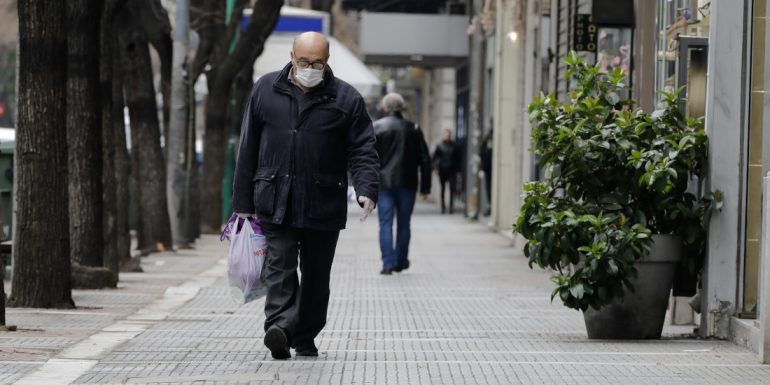Answers to frequently asked questions about cases and close contacts are provided by the Ministry of Health in an announcement.
Detailed questions and answers:
- 1. What does a coronavirus case mean?
A person who has a positive result in a coronavirus diagnostic test (molecular test-PCR or rapid antigen test) is considered a coronavirus case.
2. What should I do if I am confirmed to have a coronavirus test case?
When we are informed of a positive result from a diagnostic test, we owe it immediately limit ourselves and yes we expect communication from the Tracking Team of the Ministry of Health. Also, we inform our Personal Doctor, who is responsible for monitoring the clinical picture of his beneficiary, on a regular basis.
The positive person is not allowed to leave the house and visit. It is noted that the virus positive person prohibited from going to their sampling points fasttesting. Ideally, the person should lives alone in the house / space or, if this is not possible, be isolated in a room of the house, which will not be used by the other members of the household. The room in which the virus positive person lives should be well ventilated.
Parallel, we start recording the people with whom we had close contact and we inform them, so that they limit themselves immediately.
3. For how many days should I remain self-limiting if I have a coronavirus case?
Coronavirus cases remain in self-limitation for a period of 14 days from the day of onset of their symptoms or, if it is an asymptomatic person, from the day of sampling. In case that the person develops symptoms at any stage of the 14 days inform the Doctor's Personnel and has frequent telephone communication.
4. How do I break free from the constraint if I am positive?
To release the positive case, the responsibility lies with the Personal Physician on the basis of a protocol notified to the doctors by the Epidemiological Surveillance Unit.
In case the person does not have a Personal Doctor, he is released by the Release Team of the Ministry of Health.
In both the above cases, upon their release, all cases receive a text message indicating the day of release. Sick leave is given by the Personal Physician.
5. When am I considered to be in close contact?
Close case contact is the person who, among other things:
- He lives together with a confirmed case.
- has direct physical contact with a confirmed case (eg handshake).
- has face to face contact with a confirmed incident COVID-19 at a distance of less than 2 meters with a duration of more than 15 minutes.
- He met indoors (eg classroom, cinema, hospital waiting areas, etc.) with a coronavirus case at a distance of less than 2 meters with a duration of more than 15 minutes.
6. Who will inform me that I am in close contact with a case?
When A person diagnosed as positive for the virus should inform all those with whom he or she has had close contact (see answer to question 5) on period 48 hours before the onset of symptoms or before sampling from which the positive result emerges. At the same time, it records the contact details of the close contacts and sends them electronically to the Tracking Team.
7. What should I do when I am informed that I am in close contact with a case?
Once a person is informed that they are in close contact with a case they should confines himself to his home or to a place separate from the other members of his household. Exit is not allowed from home or visits for people who are valued as close contacts. Under no circumstances is the person considered to be in close contact allowed to go to the rapid test sampling points.
8. For how many days is the restriction on close contacts valid?
Close contacts remain in mandatory self-restraint for 14 days from their last contact with the case regardless of the result of the laboratory test to which they undergo. The day of contact with the case is defined as day "0".
Close contacts are submitted to molecular test (PCRtest) after arranging an appointment by the Public Health Clinics and at the same time receive instructions via text message for self-restraint.
Close contacts can be released earlier than 14 days ONLY if they undergo a molecular examination at their own expense (PCR test) in an approved private clinical laboratory on 7η day of their restriction, and if the result is negative. It is emphasized that the result of rapid antigen test is not acceptable.
If a person is considered close contact manifest symptoms at any time during his isolation, must contact the Physician's Staff immediately and to him inform that it is close case contact.
9. In which cases am I exempt from the restriction if I am assessed as a close case contact?
A person is exempt from the mandatory restriction if it is assessed as close case contact in the following cases:
- People who have completed their vaccination schedule with any of the available licensed vaccines. A prerequisite is to have 14 days have elapsed since the last dose was taken of the vaccine.
- People who have released as positive cases within 6 months.
